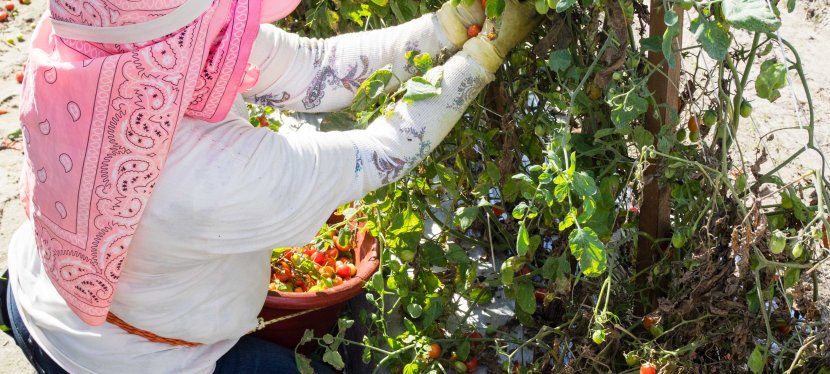While it may seem like a long time, it is heartening to recall that Moses and the Israelites spent 40 years in the desert, waiting to enter the promised land.
Almost 30 years ago, Fr. Mike Crosby, O.F.M., Cap. began a dialogue with executives from Wendy’s. Concerned that adequate progress was not being made on due diligence concerning potential and actual human rights issues, the Capuchin Province of St. Joseph filed a shareholder resolution on human rights this year. The company challenged the resolution, and the Securities Exchange Commission ruled that the resolution could be omitted. As our resolution had been omitted by the SEC, it would not be coming to a vote, but I attended the shareholder meeting in Dublin, OH on behalf of the Capuchins so as to make a statement to the board and the company officers about our concerns in the area of human rights due diligence.
The team from Wendy’s were very gracious hosts. Having arrived early, a member of the investor relations team took me to visit what had been the office of Wendy’s founder Dave Thomas. I had the opportunity to meet executives who have been on calls with us. Personally, I find it helpful to have a face to put to the voice that I hear on the phone. I also had the opportunity to meet CEO Todd Penegor, board chair Nelson Peltz, and chief legal officer E.J. Wunsch, as well as other members of the board.
The meeting itself lasted a bit over 75 minutes. After a brief video highlighting Wendy’s 50 years, Mr. Peltz opened the meeting. Three items of business were conducted: a vote concerning the board of directors, a vote concerning the company’s auditors, and, finally, an advisory vote concerning executive compensation. The video to the voting was completed within a swift 11 minutes. Next, Mr. Penegor gave an overview of the company’s business plan. Following Mr. Penegor, Liliana Esposito, the chief communications officer, addressed corporate social responsibility and gave an ESG update.
Upon the conclusion of Ms. Esposito’s remarks, the floor was opened to general questions and comments. First, Kerry Kennedy, daughter to the late Robert F. Kennedy, spoke in favor of the Coalition of Immokalee Workers (CIW) and the Fair Food Program. Next, Mr. Peltz recognized me, and I approached the microphone to offer my statement.
My remarks aimed to accomplish four things:
- To identify the abundant risks for human trafficking and forced labor in agricultural supply chains;
- To describe the fundamental shift effected by laws here in the U.S. and abroad that, while good and necessary, codes of conduct and audits are no longer sufficient;
- To outline a better process, employed by many leading companies: a human rights risk assessment that incorporates the U.N. Guiding Principles on Business and Human Rights;
- And to encourage Wendy’s to take these necessary steps that, at heart, are in accord with the deepest values of the founder, Dave Thomas, and the company.
Subsequently, Chelsea Rudman of the Workers Rights Consortium spoke similarly of the value of worker-driven social responsibility efforts. Lena Brook of the Natural Resources Defense Council spoke about the use of medically-important antibiotics in meat and poultry served at Wendy’s. A shareholder asked a question concerning the updating of restaurant infrastructures. Mike Telford of the National Pork Producers Council thanked Wendy’s for their relationship with pork producers. Nelly Rodriguez, from the CIW, offered a moving witness, in Spanish, about the importance of the Fair Food Program. Another shareholder asked a question concerning non-meat substitutes. Finally, a shareholder, who is also an adoption assessor, rose to speak a word of thanks for Wendy’s commitment to the Dave Thomas Foundation for Adoption. Soon thereafter, the meeting was adjourned.
While the meeting maintained its decorum, no attendee could be blind to the concerns raised by the different voices. While I am disappointed that our resolution did not come to a vote this year, SGI remain committed to working with Wendy’s to improve their practices in the area of human rights.
As the saying goes, Rome was not built in a day. Even after a 40-year sojourn in the desert, the fact is that Moses never made it into the promised land, but he did see it before he died. Faith-based shareholders differ from day traders. We are in it for the long haul. We genuinely care about the companies we engage. We will bring items to their attention that may make company leadership uncomfortable. We do so, because we are committed to protecting people and the planet. We believe that the interests of the company, through the long haul, align with the interests of people and the planet.
The statement prepared for the 2019 Wendy’s shareholder meeting can be found here.








